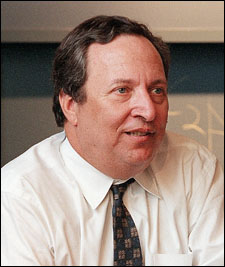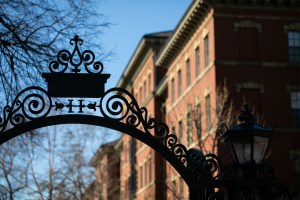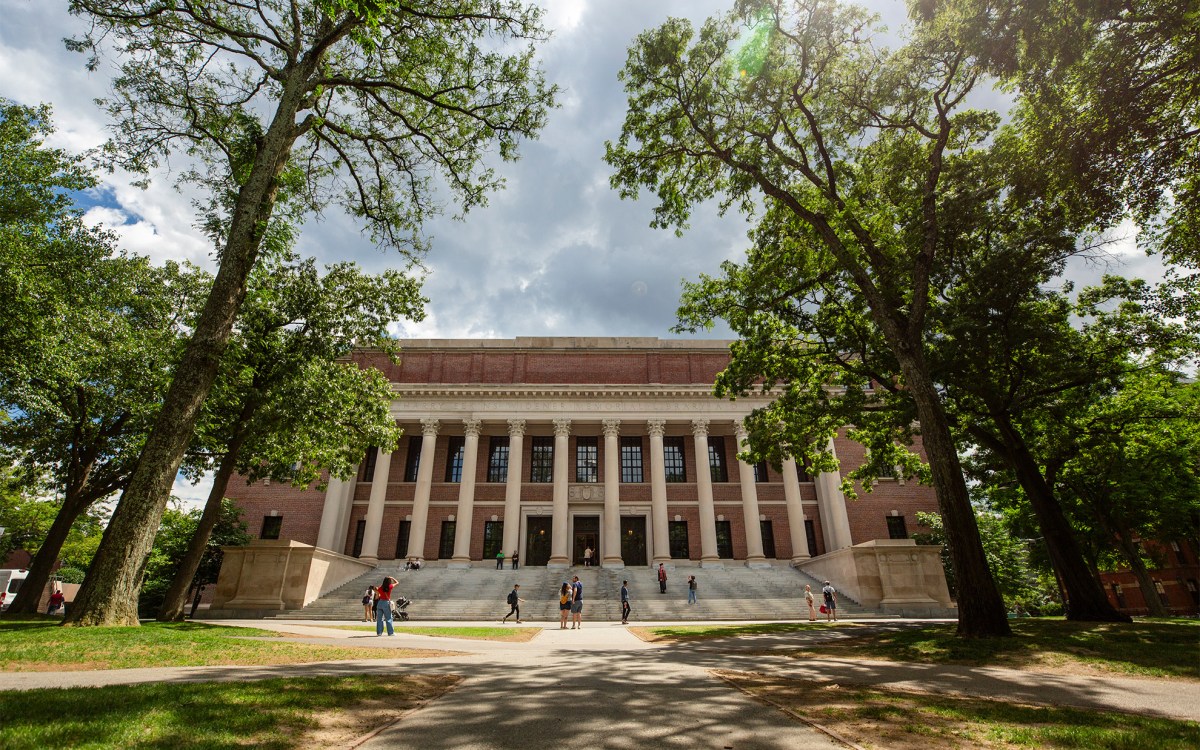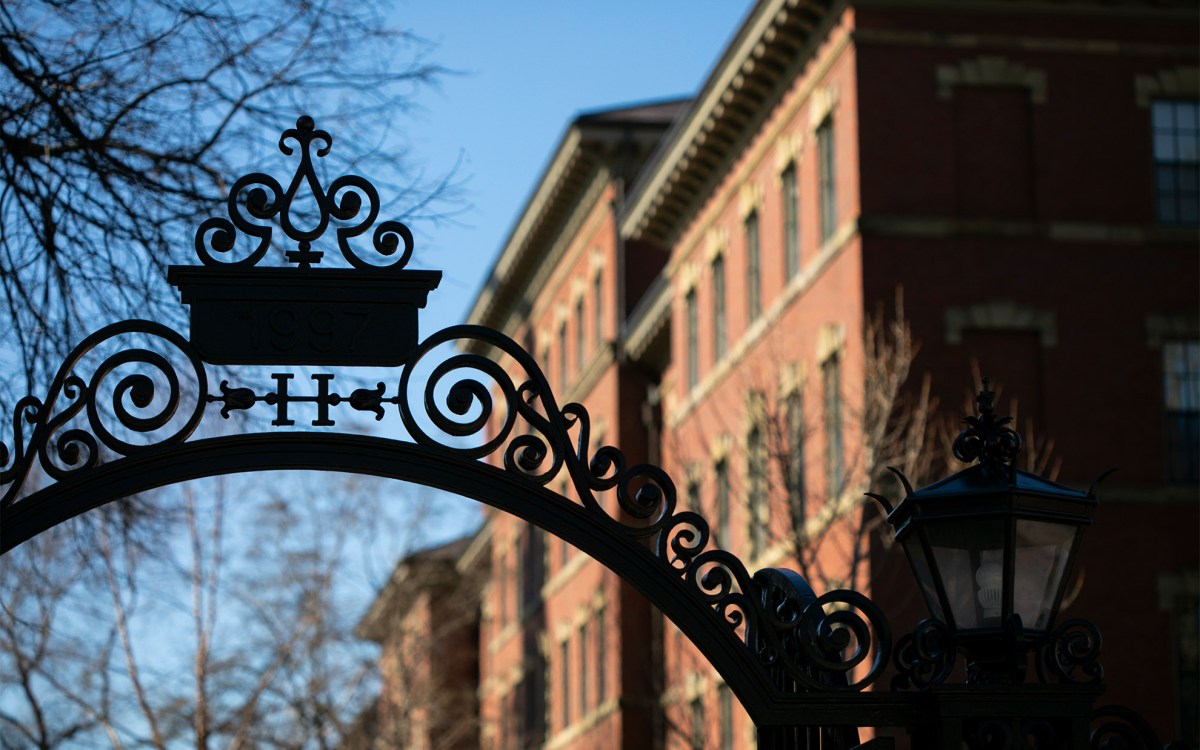College aid reforms needed to encourage students
Summers calls for open path to higher education
In the keynote speech to the annual College Board Forum in Chicago on Monday (Nov. 1), Harvard President Lawrence H. Summers issued a call to action to educational leaders to help restore “education to its proper role as a pathway to equal opportunity and excellence in our society.”
He said that the effect of inequality on our nation’s higher education institutions can be seen in the fact that “the least bright rich kids are as likely to go to college, and more likely to go to a good college, than the brightest poor kids.”

Summers, honorary co-chair of the event along with Chicago Mayor Richard Daley, said that in recent years American higher education has been transformed from the nation’s great equalizer to an institution that often reflects the growing economic disparities in the country.
Speaking to about 1,000 college presidents, admissions officers, high school guidance counselors, and other education officials, Summers cited statistics that highlight the growing income divide in America, where families in the top one percent earn more than those in the bottom 40 percent combined.
A student in the nation’s richest 25 percent is six times more likely than a student in the poorest 25 percent to earn a bachelor’s degree within five years of leaving high school. Further, he said, at selective institutions such as Harvard and other Ivy League schools, just 10 percent of students come from the nation’s poorest 50 percent of families.
Summers outlined several steps to improve the situation, including financial aid programs aimed at low-income students, such as Harvard’s waiver of any family contribution for students whose families earn less than $40,000. Just as important, he said, are outreach efforts to dispel the perception that college is just for the wealthy.
“We need to make sure that we as a nation do everything we can to make sure that adequate financial aid is available to every academically prepared student, and that students know it will be there,” Summers said. “Perception is as important as reality, because perceptions shape the dreams and aspirations of our young people.”
Summers also underscored the need for universities to partner with public schools to help keep students on the pipeline to college and to achieve excellence. Summers said, “We can all agree that no child should be left behind, but let us also agree that every child can get ahead.” Nationally, proficiency numbers in reading and math have been discouraging, especially in urban schools.
Among eighth-graders in city schools, only 21 percent have solid math skills, while only 19 percent are proficient in reading. Summers said, “Nationwide we are not even meeting minimal standards. … The imperative of equality must never mean the toleration of mediocrity.”
Students also need access to the information, counseling, and support necessary to make proper decisions, Summers said. This is increasingly difficult given the decline in the numbers of high school guidance counselors across the country. Summers said the average ratio of students to guidance counselors in America is 500 to one. The situation is even worse in California, he said, where the ratio is 1,000-to-1.
“The disappearing high school guidance counselor is a national disgrace,” Summers said. “There are many schools with no counselor at all.”
Admissions testing also needs to be closely examined, Summers said. He praised recent changes to the Scholastic Aptitude Test (SAT) as being designed to minimize the effect of expensive preparatory courses, which low-income students are less likely to take. The new test, he said, is “less coachable,” and designed to better measure what students learned in high school and their capacity to succeed at the college level.
Other reforms in the admissions process are also needed, Summers said, adding that he’s working with Harvard College Dean of Admissions William Fitzsimmons and Director of Financial Aid Sally Donahue to look at the effect of the admissions process in order to make it more transparent and welcoming for our nation’s high school students. Together, they’re seeking to answer concerns that the process is intimidating enough to dissuade some students and their families from ever attempting to apply to college, as well as hindering students from spending time on their true passions and talents.
Finally, Summers said, colleges and universities across the country have to ensure their campuses are welcoming to students of all income groups. One example of an outreach program is under way at Harvard, employing hundreds of undergraduates to call talented, low-income students across the country and urge them to consider college – including Harvard – after high school. Once on campus, further support is often needed to help with expensive course materials, tickets to cultural events, research opportunities, and a host of other expenses.
Following his speech, Summers visited the Walter Payton College Preparatory School, a public high school in Chicago that is noted for its technology-rich learning environment and international curriculum. Summers praised the school for admitting students with various backgrounds, including one-third from low-income families.
“[The presidential] election is likely to demonstrate that we are, in important respects, a divided nation. But we all should be able to agree on the importance of assuring that all children can get ahead as far as their ability and ambition will take them,” Summers said.




